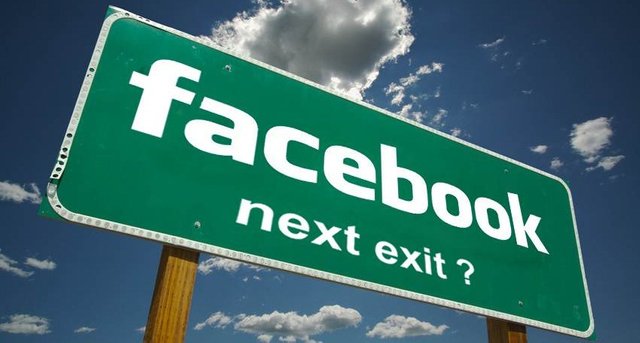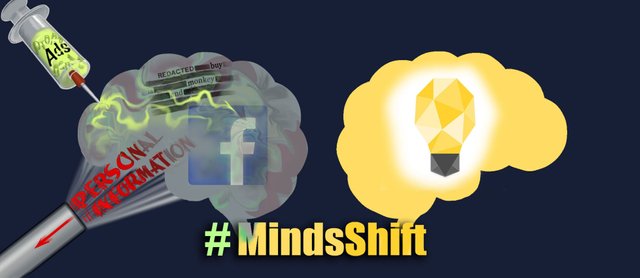Sick of Facebook? Read This.

“I didn’t realize you were still doing your show!”
“Why can’t I see your posts anymore?”
“I’ve had to re-follow you several times on Facebook.”
These are but a few of the various comments and complaints about my Facebook page that I’ve fielded the past two years. With growing regularity and intensity, the cheery blue “F” has fucked over radical journalists like me, emboldened by the Russiagate and fake news narratives that brand any dissident or alternative media as our generation’s folk devils. While recent crackdowns have been far more pointed and Orwellian than before, censorship and Facebook go way back.
In 2012, The Guardian reported on Facebook’s arbitrary and ridiculous nudity and violence guidelines which allow images of crushed limbs but – dear god spare us the image of a woman breastfeeding. Still, people stayed – and Facebook grew. In 2014, Facebook admitted to mind control games via positive or negative emotional content tests on unknowing and unwilling platform users. Still, people stayed – and Facebook grew. Following the 2016 election, Facebook responded to the Harpie shrieks from the corporate Democrats by setting up a so-called “fake news” task force to weed out those dastardly commies (or socialists or anarchists or leftists or libertarians or dissidents or…). And since then, I’ve watched my reach on Facebook drain like water in a bathtub – hard to notice at first and then a spastic swirl while people bicker about how to plug the drain.
And still, we stayed – and the censorship tightened. Roughly a year ago, my show Act Out! reported on both the censorship we were experiencing but also the cramped filter bubbling that Facebook employs in order to keep the undesirables out of everyone’s news feed. Still, I stayed – and the censorship tightened. 2017 into 2018 saw more and more activist organizers, particularly black and brown, thrown into Facebook jail for questioning systemic violence and demanding better. In August, puss bag ass hat in a human suit Alex Jones was banned from Facebook – YouTube, Apple and Twitter followed suit shortly thereafter. Some folks celebrated. Some others of us skipped the party because we could feel what was coming.
On Thursday, October 11th of this year, Facebook purged more than 800 pages including The Anti-Media, Police the Police, Free Thought Project and many other social justice and alternative media pages. Their explanation rested on the painfully flimsy foundation of “inauthentic behavior.” Meanwhile, their fake-news checking team is stacked with the likes of the Atlantic Council and the Weekly Standard, neocon junk organizations that peddle such drivel as “The Character Assassination of Brett Kavanaugh.” Soon after, on the Monday before the Midterm elections, Facebook blocked another 115 accounts citing once again, “inauthentic behavior.” Then, in mid November, a massive New York Times piece chronicled Facebook’s long road to not only save its image amid rising authoritarian behavior, but “to discredit activist protesters, in part by linking them to the liberal financier George Soros.” (I consistently find myself waiting for those Soros and Putin checks in the mail that just never appear.)
What this all proves is what was already clear two years ago: Facebook is afraid of dissenting voices – and they have the power to drain the social media presence of this rising tide of leftist ire. We can’t plug this drain. The drain (and the entire bathtub) is in the hands of a private corporation that has intertwined itself with the government in a perverse partnership based on silencing dissent and streamlining a Stepford-like online experience. Russia’s bad, nipples are hidden, Santa is white, go back to sleep. Put simply, if we are interested in uncovering truth, building networks, fighting for justice and freedom, we have to make a shift.
I understand why people stay – I understand why I stayed. More than a quarter of humanity uses Facebook; it’s been deemed too big to delete. People go there for connection – to see kids growing, to see what people are cooking, to reassure themselves that an ex’s new partner is ugly. People go there to build their brands. I’ve personally built followings for two bands, several organizations and one TV show on the platform. But I can no longer get through. I, and journalists like me, can not break through that aforementioned perverse partnership.
It follows that the “news” people get on Facebook, a main source for news, will never be the news from the front lines of our fights. It will never be the news from the most marginalized and oppressed folks. It will never be the news that hits straight at the heart of this crooked, corrupt system. It will be sanitized, whitewashed, twisted propaganda that serves and protects the owners of corporate media – the very same corporations that depend on our oppression, distraction and apathy. It will be infotainment and whatever makes you feel good about you. Because that means you’ll keep coming back. And as you go back, you’ll expose yourself entirely to the blue and white algorithm. Indeed, outside of Orwellian censorship, Facebook also excels at spying on us.
Already back in 2008, alternative media reported on the surveillance power of Facebook. Ten years later and after his historic NSA leaks, Edward Snowden reminded us that “Facebook is a surveillance company rebranded as ‘social media.’” It seems a hyperbolic visual but the dystopian picture of a constantly surveilled human being scrolling through banal content curated by a state-sponsored corporation is very real.
Since the October purge, calls from the left regarding alternatives have been loud but splintered. Many suggest that we go back to the days of analog organizing – phone calls, knocking on doors, in-person meetings. As an organizer, I was unaware that we had ever stopped doing that. Truly, face-to-face organizing remains the most effective tool for us social beings. At the same time, to cast off the advancements of technological networking would be to walk away from an internet designed to be a place of collaboration and sharing. We shouldn’t and don’t have to do that.
What we need is an open source, non-surveillance platform. And right now, that platform is Minds. Before you ask, I’m not being paid to write that. My relationship with Minds consists of my account there and an interview with Minds co-founder Bill Ottman on my show.
Fashioned as an alternative to the closed and creepy Facebook behemoth, Minds advertises itself as “an open source and decentralized social network for Internet freedom.” Minds prides itself on being hands-off with regards to any content that falls in line with what’s permitted by law, which has elicited critiques from some on the left who say Minds is a safe haven for fascists and right-wing extremists. Yet, Ottman has himself stated openly that he wants ideas on content moderation and ways to make Minds a better place for social network users as well as radical content creators.
What a few fellow journos and I are calling #MindsShift is an important step in not only moving away from our gagged existence on Facebook, but in building a social network that can serve up the real news folks are now aching for. To be clear, we aren’t advocating that you delete your Facebook account – unless you want to. For many, Facebook is still an important tool and our goal is to add to the outreach toolkit, not suppress it.

We have set January 1st, 2019 as the ultimate date for this #MindsShift. Several outlets with a combined reach of millions of users will be making the move – and asking their readerships/viewerships to move with them. Along with fellow journalists, I am working with Minds to brainstorm new user-friendly functions and ways to make this #MindsShift a loud and powerful move. We ask that you, the reader, add to the conversation by joining the #MindsShift and spreading the word to your friends and family. We have created the #MindsShift open group on Minds.com so that you can join and offer up suggestions and ideas to make this platform a new home for radical and progressive media.
Now is the time to defend the remnants of the Information Revolution. In the streets and online, we need to hear and uplift voices for radical and progressive change. Take off the corporate gag, close the social media surveillance blinds, and shift.
Here's Eleanor's on mind.com;
https://www.minds.com/ActOut
Thanks for including that!
Resteemed. What role do you see for Steemit in this context?
I think Steemit absolutely has a role in this. What exactly that is, I'm not sure. Any thoughts/suggestions?